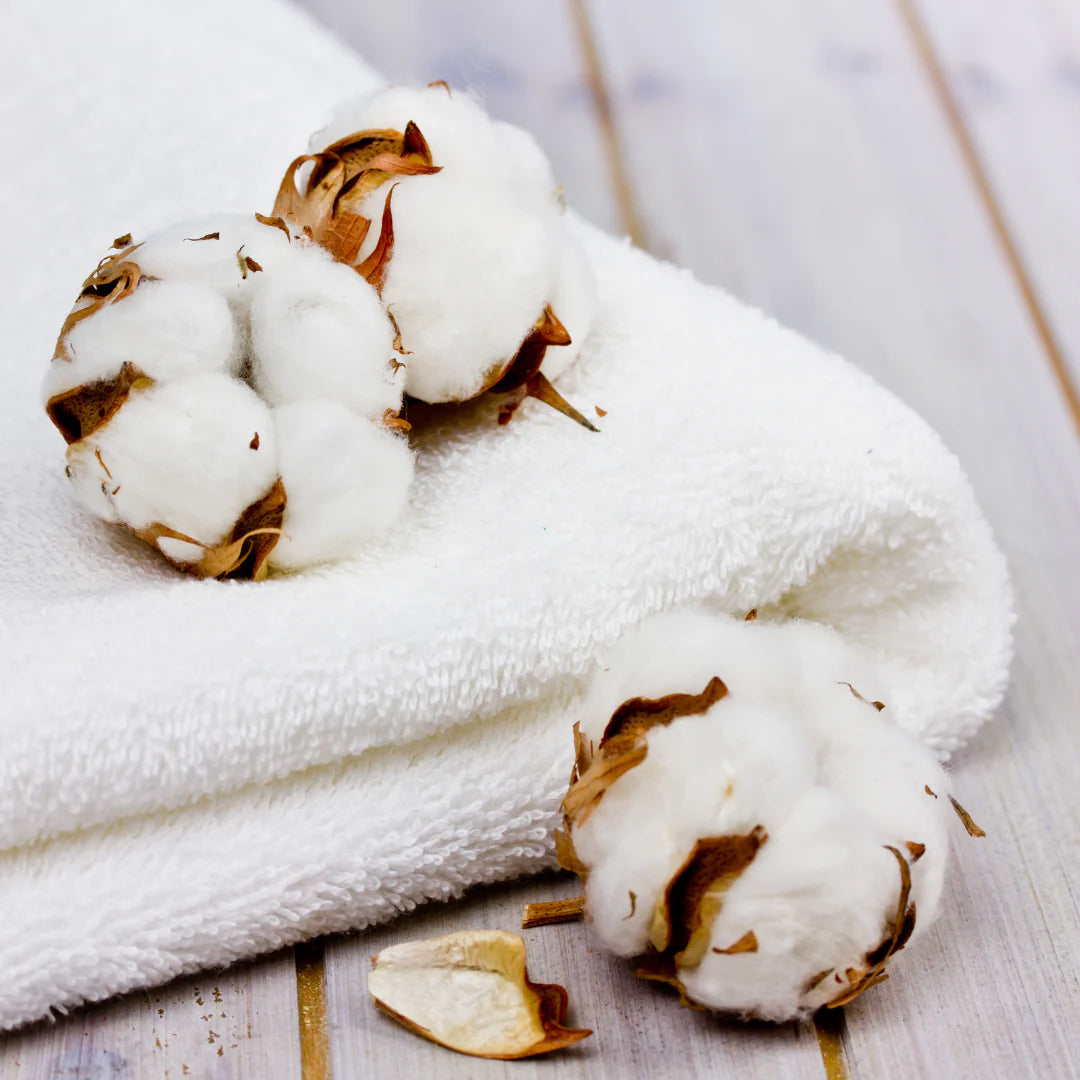
3 things they don't tell you about non-organic cotton
Share
Have you ever wondered about the hidden costs behind non-organic cotton?
The choices we make as consumers go beyond fashion and comfort; they impact the environment, communities, and even our health.
At ecoLinen, we believe in transparency and, as a brand committed to sustainability and the health and well-being of our customers, it's crucial to shed light on some lesser-known aspects of non-organic cotton production.
This time, we will explore three significant factors that are rarely discussed: endocrine-altering toxic chemicals, farmer deaths, and the ties to banks in the cotton industry.
So, let's dive in and uncover the truth about non-organic cotton:
1. Endocrine-altering toxic chemicals
Non-organic cotton is often cultivated using pesticides and synthetic fertilisers that pose serious health risks. These chemicals, including insecticides and herbicides, have been linked to several disturbing effects on human health, including endocrine disruption.
Endocrine disruptors interfere with the body's hormone systems, potentially leading to reproductive issues, developmental abnormalities, and even certain types of cancer.
For instance, one commonly used chemical in non-organic cotton farming is glyphosate, a key component in various herbicides.
A recent study found traces of glyphosate in non-organic cotton products, including bedding. This raises concerns about long-term exposure to potentially harmful substances while sleeping, as the skin can readily absorb these chemicals.
Imagine that – your bed sheets might have more to them than meets the eye!

2. Farmer deaths
Imagine farmers working hard to grow the cotton for your bed sheets. Sadly, with regular cotton, they can get sick from the chemicals they use.
Some even face serious health issues, and, in extreme cases, lose their lives. Your comfy bed sheets might have a more complicated story than you'd think!
The extensive use of toxic chemicals in non-organic cotton production puts farmers at great risk of exposure to harmful substances. These farmers often lack the necessary protective gear, training, and knowledge required to handle such chemicals safely.
According to the World Health Organization, thousands of cotton farmers die each year due to pesticide-related health issues. This underlines the urgent need for a shift towards organic and sustainable cotton farming practices that prioritise the health and safety of farmers.

3. Tied into banks
Regular cotton bed sheets are part of a bigger picture that involves money decisions. The non-organic cotton industry is closely linked to a system tied to banks and financial institutions.
Large corporations dominate the global cotton market, controlling every aspect of the supply chain, from production to distribution. Small-scale farmers often have to borrow money to buy seeds and chemicals. This makes them rely a lot on big companies and lenders. They use special seeds and chemicals, and if the prices for their crops go up and down a lot, it can lead to them owing a lot of money.
Sometimes, they can't pay back what they owe, and this causes big problems. Many farmers face foreclosure, loss of livelihood, and even suicide.

This troubling reality showcases the urgent need for a fairer and more sustainable cotton industry that empowers farmers and breaks free from the control of banks and corporate giants.
Understanding the hidden costs behind non-organic cotton is important for making informed choices as consumers. From endocrine-disrupting toxic chemicals to the devastating impacts on farmers and the entanglement with banks, the detrimental effects of non-organic cotton are far-reaching.
At ecoLinen, we emphasise the importance of organic and sustainable cotton farming practices, guaranteed free from toxic chemicals, and championing the well-being of both farmers and consumers.



